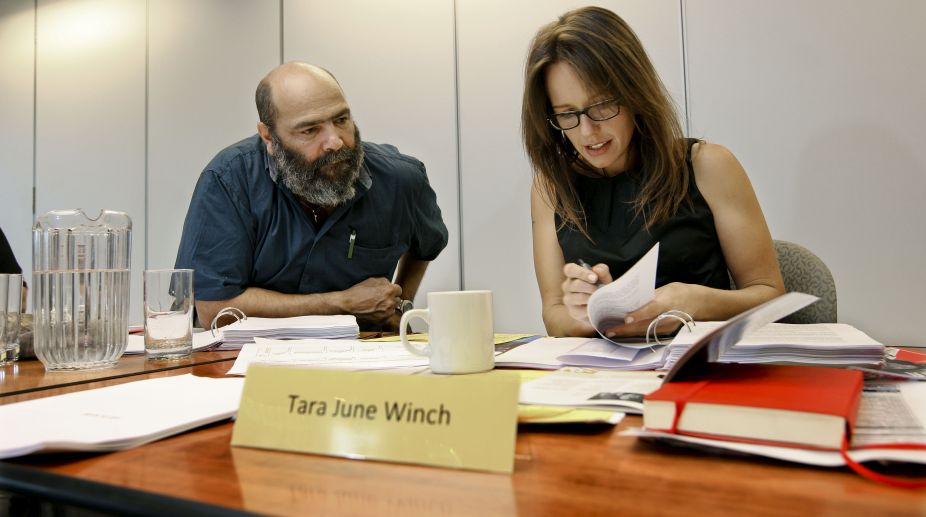Sahitya Akademi awardee, Kiran Nagarkar dies at 77
Among his most known works are Saat Sakkam Trechalis, Ravan and Eddie and the epic English novel Cuckold, for which he was honoured with the 2001 Sahitya Akademi Award.

Tara June Winch
Coming from the multi-cultural ancestry of Wiradjuri, Afghan and English, Tara June Winch is an author of prodigious depth and variety. She has won many awards including the International Rolex Mentor and Protégé Award, which saw her work under the guidance of Nobel Laureate and Unesco ambassador Wole Soyinka.
In 2004, Tara won the David Unaipon Award for Indigenous Writers and she is published widely in anthologies, including Best Australian Stories in 2005, 2006, and 2010. Her first book, Swallow the Air, was published in 2006 and she was named the Sydney Morning Herald Best Young Australian Novelist for it.
Advertisement
Winch currently lives in Paris. Her latest book After the Carnage (2016) is a collection of stories ranging from New York to Istanbul and Pakistan to Australia. These stories chart the distances in their characters’ lives. Her forthcoming novel is The Yield. Excerpts from an interview:
Advertisement
Q. Have you always wanted to become a writer?
I always loved poetry and the music in literature and song writing. I happened to serendipitously have a publishing contract at the age of 20, and having no tertiary education, it was the only career option available to me, so I just went for it. Writing is what I love and hence I’m doing it all my life.
Q. You come from a multi-cultural background. How does it influence your writing?
I write a great deal about indigenous issues and characters because I know them best, they feel close to me, as if they deserve the space to speak. My entire writing career began with my first novel Swallow the Air, which is about a young woman exploring her indigenous identity and how it fit her and how she fit in the world.
It was natural to write about these topics, because I felt them so keenly while I was growing up. I’ll always write about the underdog, and the outsider as that is what I’m attracted to when I read, and it’s those voices that appear on the page when I sit down to write.
Q. What else inspires your stories?
I think I’ll continue to be drawn in different writing directions throughout my career. I have definitely become more experimental even if my characters have remained footed in the real world. I’m inspired by the beauty a sentence can create, the images, memories and boundless insinuations a phrase can stir in the reader.
I really am inspired to make the reader feel and think and be immersed in the characters’ lives. I think I will keep trying to entertain the reader, but more so, I think I want to move them.
Q. How was the experience of working with Wole Soyinka and how does he motivate you?
It was a great experience to work with Wole Soyinka. He’s a formidable writer of plays, fiction and non-fiction, and his command of the written word is incredibly inspiring. He’s also lived such a varied life, and the huge obstacles he’s overcome, his experiences of exile and imprisonment, are such a spur for me to live the best life I can and to be appreciative of my situations.
Q. How did the idea behind your book After the Carnage come about?
After the Carnage came about because I had (and continue to have) loose strands and snippets of stories that come to me but that don’t fit into the larger work that I am involved in. It was inspired by many of my travels and small, beautiful encounters I’ve experienced. I really love a lot of the characters, and they remained with me for so long, waiting to be heard so I am quite proud of the collection.
Q. Share a bit about your upcoming book The Yield.
My forthcoming novel, The Yield, is a huge book I had been working on for more than a decade. It’s about language, and extinction, about the bonds of love across time and all the wrongs and rights of the past and how they shape a family, a community and a country touched and torched by colonialism.
Advertisement